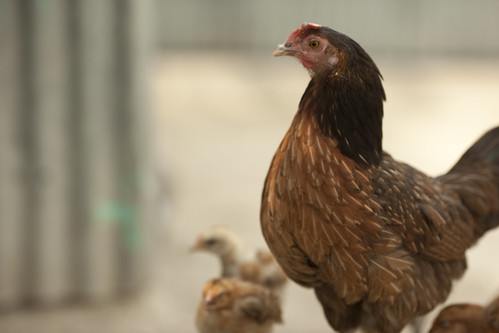 |
| Amid fears of resurgence of avian influenza in parts of Asia, researchers at the International Food Policy Research Institute and the International Livestock Research Institute are helping governments in developing countries to make informed decisions on how to control the spread of the disease and minimize its economic impact on the poor. (Photo: IFPRI) |
The H5N1 form of avian influenza that has recently swept through Asia and into parts of Europe and Africa poses an extraordinary challenge for the international community.
And now the United Nations has warned of an imminent resurgence of avian influenza in parts of Asia, following the detection of a mutant strain of avian influenza in China and Vietnam. The UN Food and Agriculture Organization (FAO) has urged "heightened readiness and surveillance against a possible major resurgence of the H5N1 highly pathogenic avian influenza".
While a strong global response is necessary to control the spread of this disease, efforts in developing countries have shown that conventional approaches to disease control and prevention may not always work in the case of avian influenza.
There is considerable uncertainty throughout the developing world about the disease’s spread mechanisms, as well as the timing, extent, and severity of potential outbreaks.
This gap in knowledge, however, does not change the fact that developing countries are faced with critical decisions about how to defend against and recover from a potential outbreak of avian influenza.
Researchers at the International Food Policy Research Institute (IFPRI) and the Market Opportunities theme of the International Livestock Research Institute (ILRI) are spearheading a new research program to study the patterns and determinants of the spread of highly pathogenic avian influenza (HPAI), the economic impacts of an HPAI outbreak on different populations, and cost-effective HPAI control and prevention strategies.
The goal of the project, which is funded by the UK Department for International Development (DFID), is to help governments in developing countries make more informed decisions about how to control the spread of HPAI and how to minimize the impact on different populations, particularly the poor, of both the disease and the measures taken to control an outbreak so as to ensure optimal compliance.
The project is implemented in Ethiopia,Ghana, Indonesia, Kenya and Nigeria.
For more information and to download the project publications, please visit the project web page.



